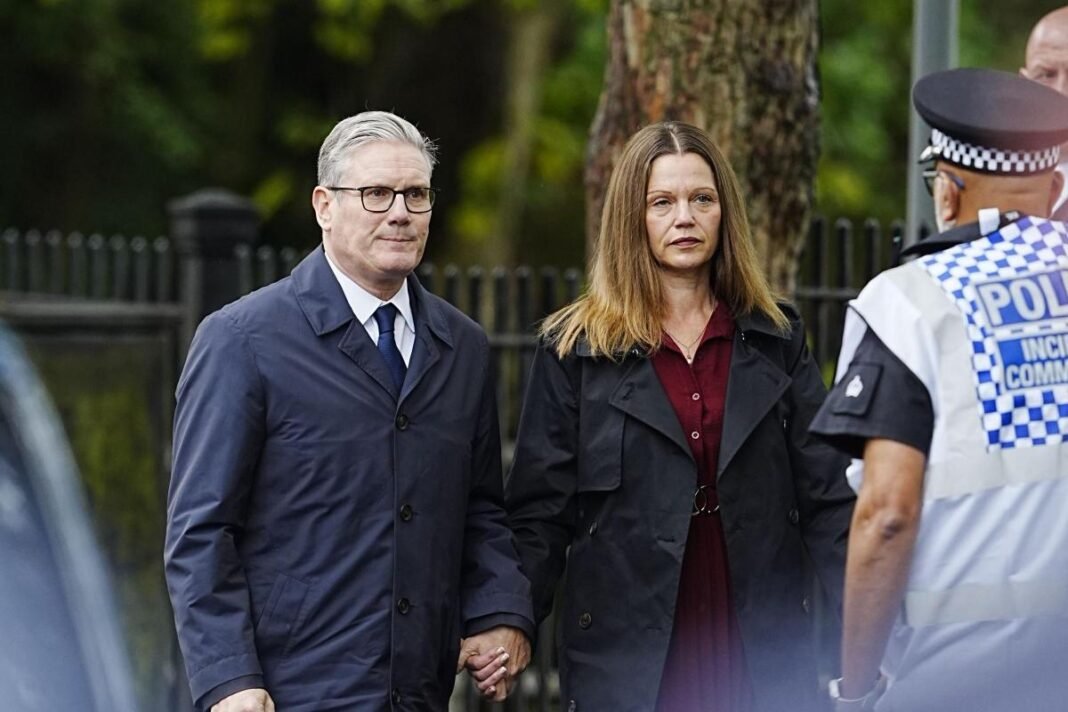The Prime Minister has called for a national grief period. Sir Keir Starmer made this request after a deadly attack at a Manchester synagogue. He specifically urged pro-Palestinian protest organizers to postpone their events. He asked them to “recognise and respect the grief of British Jews.” Consequently, a difficult debate about protest timing has begun. This call for a national grief periodhighlights deep community tensions.
Sir Keir published his appeal in Jewish community newspapers. He wrote that peaceful protest is a democratic cornerstone. He also acknowledged justified concern about Gaza’s suffering. However, he stated this weekend would cause Jewish communities “distress.” He argued it is not a time to stoke tension. He believes it is a moment for mourning instead. Therefore, he implored people to reconsider their protest plans.
The Home Secretary echoed this sentiment. Shabana Mahmood also called for demonstrators to “step back.” She mentioned that police have strong powers to protect protest rights. However, she noted these powers can be overridden. She said she would follow police advice on public safety. She emphasized protecting a community’s right to grieve peacefully.
Police leaders expressed significant concern too. Metropolitan Police Commissioner Mark Rowley questioned the protests’ timing. He said he lacks the legal power to ban the events. Yet he warned the protests risk endorsing antisemitism. He also worried about community tension. Similarly, Greater Manchester Police’s chief appealed for reconsideration. He asked protesters to think about the current sensitivity.
Protest groups, however, are defiant. A spokesperson for Defend Our Juries said “Cancelling peaceful protests lets terror win.” They plan to proceed with a London vigil. Group member Sir Jonathon Porritt promised “huge respect” from participants. He said protesters also feel “real grief” for the attack’s victims. He argued for the right to stand against “real-time genocide in Gaza.”
This conflict creates a practical policing problem. The Met Police will deploy 1,500 officers for the protest. This diversion of resources worries Jewish security groups. Dave Rich leads policy for the Community Security Trust (CST). He called the protests “phenomenally tone deaf.” Also, he argued they take police away from protecting Jewish people. He said this choice is “remarkably self absorbed and insensitive.”
The political reaction reflects broader divisions. The Shadow Home Secretary said protests should not happen at all. He called them “extremely insensitive.” Conversely, the Green Party leader defended protest rights. Zack Polanski said non-violent protest is vital for democracy. He argued people can both grieve and protest simultaneously.
The UK’s Chief Rabbi offered a stark perspective. Sir Ephraim Mirvis connected street rhetoric to violence. He said many marches contain “outright antisemitism.” Moreover, he stated that words inevitably lead to actions. He therefore urged the government to “get a grip” on demonstrations. He described the current situation as plainly “dangerous” for society.
The Prime Minister’s call for a national grief period now tests the nation’s balance. It pits the right to protest against a community’s need to mourn. This difficult moment requires sensitivity and unity from all sides. The weekend’s events will show how the country navigates this complex challenge.
For more political updates, visit London Pulse News.


